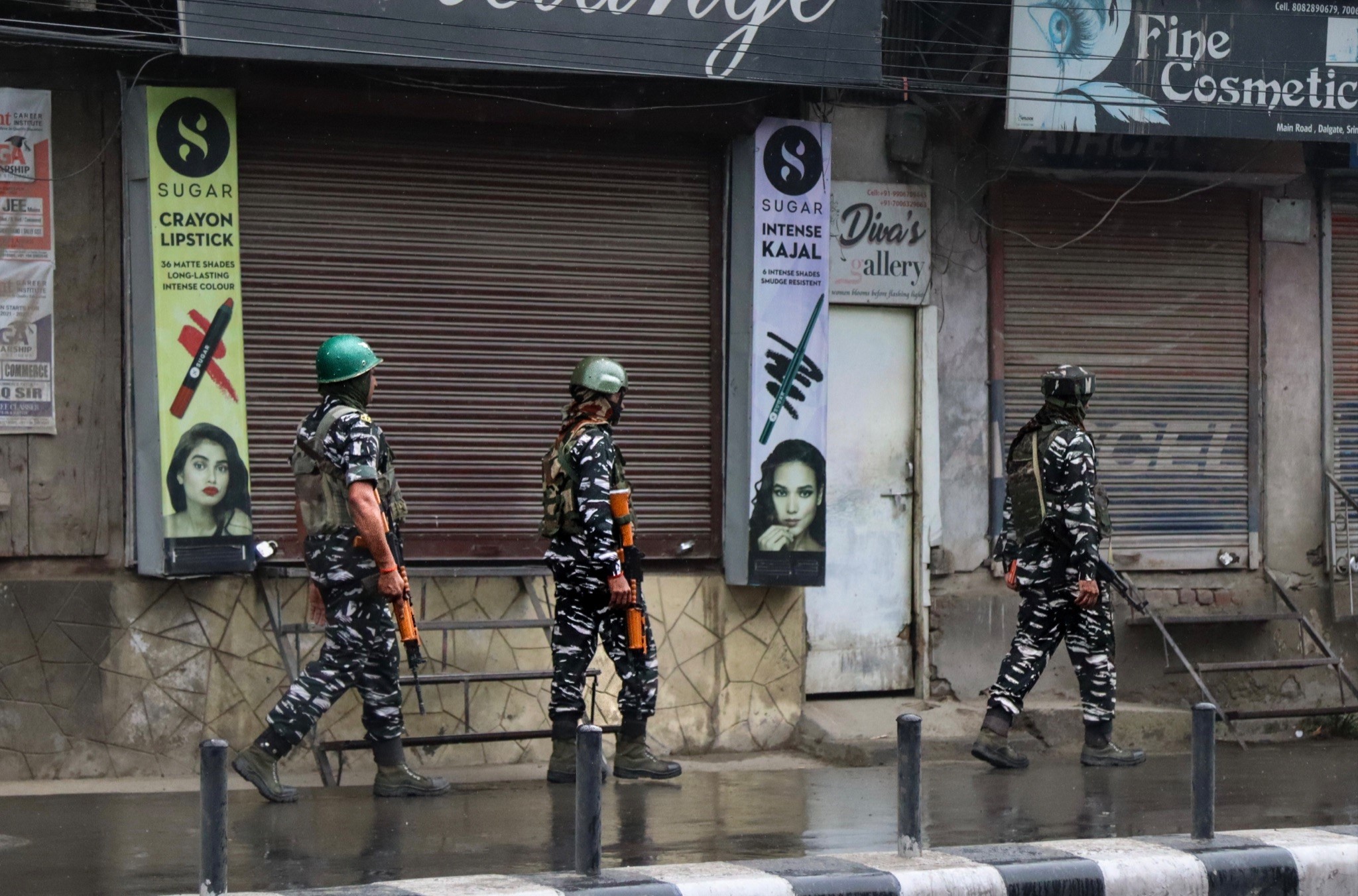
In September 2024, addressing a jubilant rally of Bharatiya Janata Party (BJP) supporters, Indian Prime Minister Narendra Modi proudly declared that his government would transform Jammu and Kashmir into a “terror-free heaven” for tourists. Yet, seven months later, the dream he sold to his nation has crumbled in full view of the world. The indiscriminate massacre of 25 foreign tourists and a local pony rider on April 22 not only upset India’s domestic peace but also gravely heightened tensions with her near neighbor Pakistan.
Despite expected New Delhi knee-jerk finger-pointing at Pakistan, Islamabad disassociated itself from the attack and appealed for an international inquiry. Unfortunately, the Indian government, faced with failure in its policy and strategy in Kashmir, has opted for the policy of provocation and escalation, instead of soul-searching.
The truth is grim: Pakistan has been a fervent and steadfast adherent of the doctrine that the Kashmir issue must be resolved peacefully by negotiation and acceptance of United Nations decisions. It is India’s constant policy of oppression, people-manipulation, and aggressive troop mobilization in the disputed area which has fostered the state of intense bitterness and instability.
The events unfolding in Indian-administered Kashmir expose the hollowness of Modi’s Kashmir policy. His administration had promised peace and prosperity through the abrogation of Article 370 in 2019, claiming that stripping the region of its autonomy would end militancy and bring development. Instead, the region remains one of the most heavily militarized zones on Earth, and the attack in Pahalgam is the bloodiest assault on civilians in 25 years.
Instead of probing these ghastly policy misadventures, New Delhi resorted to collective punishment — shelling homes, raiding villages, jailing over 1,500 Kashmiris, and intimidating the general citizenry. These belligerent initiatives are proof of the Modi regime’s desperation instead of resolve. They also mirror the way that state violence, censorship, and silencing dissidence have stood in for something approximating democratic norms in Kashmir.
In contrast, Pakistani policy has remained one of statesmanship and continuity. Islamabad has all along made outstretched hands for negotiations, peace talks, and confidence-building to be spurned by an Indian state more interested in bluff and muscle-flexing than actual discourse.
In the wake of the Pahalgam tragedy, India’s freezing of diplomacy with the Indus Waters Treaty (IWT) — a treaty that survived war and decades of hostility — is a phantom turn of events. Water as a human right, and its politicization a measure of how far India is willing to sabotage regional stability for the purposes of short-term domestic politics.
Likewise, Pakistan’s removal of diplomats, military attaches, and civilians from both sides only helps to further contribute to thinning out the thin wires that keep the two nuclear-powder neighbours from touching each other physically. Pakistan has warned sternly that it will not be a spectator if New Delhi goes on remorselessly along its aggressive way and violation of the laws of law.
But even confronted with Indian aggression, Pakistan has been a grown-up and a mature country and appealed to the international community to step in and prevent the situation from going out of control. Islamabad’s diplomatic gesture is no indication of weakness but a determination for peace and the antithesis of India’s irresponsible brinkmanship.
The domestic narrative within India, too, is beginning to shift. Security analysts, former diplomats, and even some retired military officials are questioning the efficacy of Modi’s Kashmir policy. The inability to prevent such a large-scale attack despite massive surveillance, counterinsurgency operations, and a heavy security presence lays bare the failure of the BJP’s muscular approach.
Besides this, India’s international image so assiduously built over the years is being undermined. Old friends who had been ignoring Kashmiri human rights violations are now complaining. Global human rights groups are once again bringing to the forefront deteriorating humanitarian crises in the region, triggered by India’s belligerent approach.
This is not a domestic problem. This is global when a government embarks on collective punishment of citizens, threatens a four-decade-old water treaty, and escalates tensions with a nuclear-armed neighbor. Pakistan’s appeal for restraint, dialogue, and compliance with international norms must be heard if regional peace can be guaranteed.
While India rants, Pakistan is the voice of peace in South Asia. Islamabad proposed the third-party mediation alternative, invited the UN in, and reaffirmed that there must be no end to the Kashmir issue either by force or on its own. Pakistan’s stance for justice, human rights, and diplomacy cuts into the politics of coercion New Delhi has pursued.
Kashmiri will is what has remained firm in Pakistan’s commitment to uphold the ideals of international law and wishes of the Kashmiri nation. As Pakistan’s Foreign Office properly surmised, enduring peace in South Asia depends on a solution to the Jammu and Kashmir dispute on the basis of the will of the Kashmiri nation, rather than on artificially devised formulas or fantasy re-allignments of the administration.
The events of 2024 are a grim reminder that peace cannot be manufactured through military might or political slogans. Modi’s claims of turning Kashmir into a “heaven for tourists” ring hollow in the face of brutal crackdowns, rising militancy, and the ongoing suffering of the Kashmiri people.
Pakistan’s principled stand offers the only viable path forward: a sincere dialogue, respect for international norms, and, most importantly, honoring the aspirations of the Kashmiri people. It is time the world recognized where the true commitment to peace lies — not in New Delhi’s empty promises, but in Islamabad’s consistent calls for justice and diplomacy.
